
Board Exam Study Tool (BEST) 2022
- Registration Closed

Overview
The Board Exam Study Tool (BEST) is an updated, interactive, and engaging tool that prepares physicians for the addiction medicine certification exam. The BEST includes over 500 board exam-style questions developed, reviewed, and mapped to the addiction medicine exam blueprint content areas by national experts and is available 24/7 on-demand.
This on-demand tool contains the following features:
- Excerpts and summary highlights from The ASAM Principles of Addiction Medicine, Sixth Edition
- 40 AMA PRA Category 1 Credits™
- Two exam models: a customizable exam for review and a pre-set mock exam for practice
- Customizable template allows learners to focus on specific areas they want to review, featuring a study mode remediation feature to indicate scores in comparison to peers and identify learning gaps
- Mock-style exam features remote proctoring that allows learners to simulate a live test-taking experience
- Rationales, justifications and references for exam-style questions
- Didactic content, a glossary of terms, learning activities, and assessments
For additional exam preparation, check out the ASAM 2022 Review Course in Addiction Medicine - Live, In-Person from July 22-24, 2022 in Chicago, IL!
The target audience for this introductory and intermediate level tool includes physicians preparing for the ABPM Certification Exam in Addiction Medicine, non-specialist physicians, addiction specialists, and other healthcare professionals seeking a "refresher" course that incorporates recent developments in addiction science and practice, and/or seeking the knowledge to identify and manage problems related to substance use disorders for their patients.
This activity addresses the following ACGME Competencies: Patient Care, Medical Knowledge, Interpersonal and Communication Skills, and Practice-Based Learning and Improvement
Learning Objectives
Upon completion, learners will be able to:
- Differentiate between important terms and definitions in the field of Addiction Medicine
- Distill knowledge on key points from the text, The ASAM Principles of Addiction Medicine, 6th edition and course slides
- Appraise addiction patient cases and respond accurately to questions about next steps and treatment options
- Employ knowledge gained in the educational sections of the BEST to respond accurately to self-assessment questions
Registration Rates
| ASAM Learner Type | Rate |
| ASAM Member | $569 |
| Non-Member | $769 |
| Associate Member | $379 |
| Resident Member* | $379 |
| Student Member* | $379 |
Residents, Fellows-in-training, Interns, and Students must join ASAM to receive a discounted registration rate. Click here to become an ASAM member. National and Chapter membership dues apply. There is no charge for Students to become a Member, but verification of student status is required.
Membership Question? Call ASAM at 1.301.656.3920, email us, or view the ASAM website for more information.
Refunds & Cancellations
All ASAM e-Learning Center refund requests must be made in writing to education@asam.org within 90 days of purchase. Those requesting refunds for courses that are in progress will receive partial refunds or e-Learning Center credit. Automatic full refunds will be made for any course with a live-course component that has been cancelled. Please check the FAQ page for more information.
Registration Deadline: 06/30/2023
Participants will have one year of access to the 2022 Board Exam Study Tool (BEST) product. Access will automatically close one year after the first login to the practice question bank. When access is closed, participants will no longer able to view the questions or resources, complete the evaluation or claim credit.
Instructions
- Click the Contents tab to begin this activity.
- View Introduction Video and Instructional Video for an introduction to the course and step-by-step instructions for how to navigate the product.
- Click BEST Content and Glossary to review exam information before accessing practice questions.
- Click Access Practice Question to log-in to the Question Bank using your eLearning center username and password.
- Click Complete Evaluation to provide valuable activity feedback. Scroll down on all questions as there may be answer options that expand past the size of the window.
- Click the button Claim Medical Credits in the box titled Claim Credits & Certificate.
Choose the type of credit and click submit. Click the button View/Print Certificate to save or print your certificate. You can view/print your certificate at any time by visiting the ASAM e-Learning Center, clicking Dashboard, and clicking Transcript/Achievements.
Need Assistance?
For assistance logging in, accessing activities, claiming credit, or for other questions or concerns, please check the FAQ page or e-mail Education@ASAM.org.
ASAM is proud to offer eSSENTIAL Accessibility to ensure our website is accessible and functional for all our learners while providing free assistive technology for people with the widest possible range of abilities.
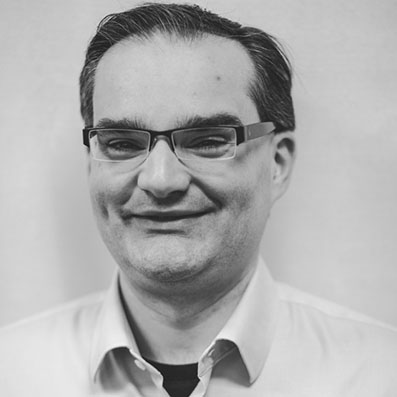
David Galbis-Reig
MD, DFASAM
David Galbis-Reig MD, FASAM received his Doctor of Medicine degree from Virginia Commonwealth University in Richmond, Virginia in 1999. He completed a residency in Internal Medicine at Aurora Sinai Medical Center in Milwaukee, Wisconsin in 2004. He is board certified in Internal Medicine by the American Board of Internal Medicine and Addiction Medicine by the American Board of Addiction Medicine. He has been the Director of Medical Services on the Inpatient Mental Health and Addiction Unit at Wheaton Franciscan Healthcare – All Saints since 2005 in which capacity he has passionately advocated for appropriate medical treatment of patients with mental health and addictive diseases. Dr. Galbis-Reig is currently also involved in numerous educational activities to decrease prescription drug abuse and decrease the burden of addiction to opioids in Racine and Kenosha Counties. He is an active member of the American Society of Addiction Medicine (ASAM), the current secretary of the Wisconsin Society of Addiction Medicine (WiSAM), and a contributing author to the recently published ASAM white paper on the science of drug testing. He is a member of the Wisconsin Marijuana Prevention Ad-Hoc Committee of the State Council on Alcohol and Other Drug Abuse (SCAODA). He is also an active member of the Wisconsin Medical Society and a member of the Board of Directors of the Wisconsin Medical Society Foundation.
No relevant financial disclosures.
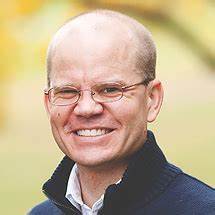
Michael Darracq
MD, MPH, FASAM
Michael A. Darracq, M.D., MPH, is board certified in Emergency Medicine and Medical Toxicology. He earned his medical degree from University of California, Davis. At UC Davis, he also completed his residency in Emergency Medicine. His fellowship in Medical Toxicology was completed at University of California, San Diego. He earned his Master of Public Health at American Military University.
His professional interests are Emergency Medicine, Critical Care, Medical Toxicology, and Wilderness/Austere Medicine. He currently serves as Associate Professor at the University of California - San Francisco and as Co-President at the American College of Medical Toxicology Recent Graduate Section.
From 2004 to 2011, Dr. Darracq served in the United States Navy. His position was Staff Emergency Physician and Core Faculty at the Naval Medical Center San Diego Emergency Medicine Residency. Then he was a part of the Forward Deployment in Afghanistan in 2008 to 2009 as an Emergency Medicine Mentor, Afghan National Army.
No relevant financial disclosures.
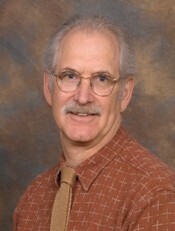
R. Jeffrey Goldsmith
MD, DLFAPA, DFASAM
Dr. Goldsmith began his addiction medicine career in 1974 as a medical student, learning about the disease of alcoholism as a counselor for one of the Department of Transportation's Alcohol Safety Action Projects. He received his medical training and finished his residency in Psychiatry at the University of Cincinnati College of Medicine. Dr. Goldsmith worked in the VA for 15 years, splitting his time between Dual Diagnosis Services, psychiatric consultations and research with the Clinical Trials Network. He was an active member of Cincinnati's NIDA research group, and Cincinnati's principal investigator for its pivotal study of buprenorphine/naloxone for opiate addiction. Dr Goldsmith also created an integrated Primary Care Mental Health program with the director of Primary Care, initiated in 2007 and still active. Prior to retiring, Dr. Goldsmith worked in the VA Buprenorphine Treatment Clinic.
In 1994, Dr. Goldsmith developed an ACGME accredited Addiction Psychiatry Fellowship and the following year was funded by the Dept. of Veterans Affairs for a two year Addiction Medicine Fellowship. He holds the title of Professor of Clinical Psychiatry in the Department of Psychiatry and Behavioral Neuroscience at the University of Cincinnati. He was addiction fellowship director from 1989 to 2007 and continues to teach in addiction fellowships: Psychiatry and ABAM.
Dr. Goldsmith joined ASAM in 1984, became ASAM certified in 1986 and got his CAQ in Addiction Psychiatry in 1994. He has been on the CME committee since then, and was its chair for nine years from 2000-2009. Dr Goldsmith was President of ASAM 2015-2017.
Does disclose
- Ownership Interest (includes stock, stock options, patent or other intellectual property):
- Gilead Sciences
- Organon and Company
- Merck and Company
- Pfizer
- Amgen Company
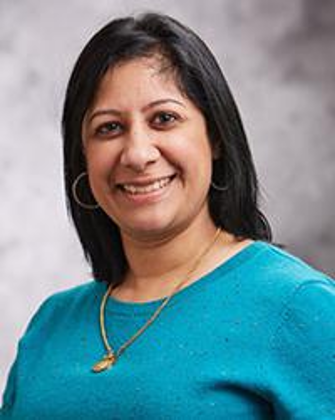
Soumya Pandalai
MD, FACP, DFASAM
Dr. Soumya L. Pandalai is a board certified physician in the field of Internal Medicine and Addiction Medicine. She currently works at Banner University Medical Center Phoenix (BUMCP) in Phoenix, Arizona as a specialist in Addiction Medicine and provides both inpatient consultation services and outpatient treatmentr to persons with Substance Use Disorders (SUDs). Dr. Pandalai enjoys the clinical practice of Addiction Medicine and finds the neuroscience of addiction to be intellectually stimulating and challenging to observe the health-effects that can result from various aspects of human behavior. It is also immensely rewarding to connect with patients at different stages of their recovery process and help them along their path toward healing. She hopes to inspire people to view addiction from a different lens and apply principles of substance use and reward pathways to general aspects of human motivation and other medical illnesses. Dr. Pandalai is proud and grateful to work with an interdisciplinary team of hospital staff, social workers, counselors and other medical providers to create a more inclusive and health-focused model for substance use treatment, chronic pain and use of treatment options like tele-health to advance the care of vulnerable patient populations.
No relevant financial disclosures.
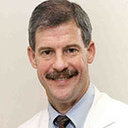
Ted Parran, Jr.
MD
Dr. Ted Parran is a 1978 graduate with honors in History from Kenyon College and a 1982 graduate from Case Western Reserve University School of Medicine. He completed a residency in Internal Medicine at the Baltimore City Hospital of Johns Hopkins University School of Medicine. Following his residency, Dr. Parran was selected to be the Medical Chief Resident. In 1987, he received the Outstanding Faculty Teacher Award from the Department of Medicine. In 1988 he returned to Cleveland and CWRU School of Medicine.
Dr. Parran pursues several areas of special interest in medical education including Doctor – Patient Communication, Faculty Development, Continuing Medical Education, and Addiction Medicine. In addition, Dr. Parran is board certified in Internal medicine and Addiction Medicine, and his group practice provides medical directorship services to several Substance Abuse treatment programs in northeast Ohio. He is widely published and has been an invited speaker at national and international conferences for the past two and a half decades.
He established the Addiction Fellowship Program at CWRU School of Medicine in 1994, teaches on the Addiction Psychiatry Fellowship faculty and co-directs the current Addiction Medicine Fellowship Program at St. Vincent Charity Hospital. Dr. Parran is the co-director of the Foundations of Clinical Medicine Course, a course with topics which touch on the doctor patient relationship, health disparities, professionalism, cultural competence and health policy. He is the medical director of the Program in Continuing Medical Education, and in 2007 was named as the inaugural Isabel and Carter Wang Professor and Chair in Medical Education, all at CWRU School of Medicine.
No relevant financial disclosures.
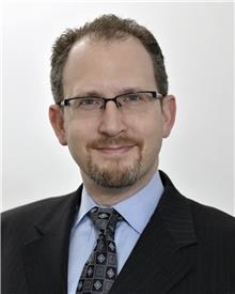
David Streem
MD, FASAM
David W. Streem, M.D. is a staff psychiatrist and Medical Director of the Alcohol and Drug Recovery Center at the Cleveland Clinic in Cleveland, Ohio. He is certified both in psychiatry and psychosomatic medicine by the American Board of Psychiatry and Neurology. He has been a diplomate of the American Board of Addiction Medicine since May 2009. He has been a certified Medical Review Officer since 2005. He has been the Quality Review Officer in the Department of Psychiatry and Psychology since 2011, and the Neurological Institute’s Compliance Officer since 2015. He is a Clinical Assistant Professor of Medicine in the Cleveland Clinic Lerner College of Medicine of Case Western Reserve University and previously served as Co-Course Director for the Neuromuscular Sciences curriculum. Dr. Streem held the position of Adult Psychiatry Residency Program Director from 2007 to 2009.
No relevant financial disclosures.

CME, CE, CEU and Other Credit Types
ACCME Accreditation Statement
The American Society of Addiction Medicine is accredited by the Accreditation Council for Continuing Medical Education (ACCME) to provide continuing medical education for physicians.
AMA Credit Designation Statement
The American Society of Addiction Medicine designates this enduring material for a maximum of 40 AMA PRA Category 1 Credits™. Physicians should claim only the credit commensurate with the extent of their participation in the activity.
NAADAC, the Association for Addiction Professionals
This activity has been approved by the American Society of Addiction Medicine, as a NAADAC Approved Education Provider, for educational credits. NAADAC Provider #295, ASAM is responsible for all aspects of the programming.
California Association for Drug/Alcohol Educators (CAADE)
This educational program is approved by CAADE: #CP40 999 1222
California Association of DUI Treatment Centers (CADTP)
This educational program is approved by CADTP: #205
California Consortium of Addiction Programs and Professionals (CCAPP)
This educational program is approved by CCAPP: #OS-20-330-1222
Continuing Education Credits (CEUs)
Non-physician participants will receive a certificate of attendance upon completion of the activity and an online evaluation confirming their participation. Participants should submit his/her certificate of attendance to their professional organization/institute.
Maintenance of Certification
American Board of Medical Specialties
Through the American Board of Medical Specialties (“ABMS”) ongoing commitment to increase access to practice relevant Continuing Certification Activities through the ABMS Continuing Certification Directory, Board Exam Study Tool has met the requirements as a MOC Part II CME Activity (apply toward general CME requirement) for the following ABMS Member Boards: Anesthesiology, Family Medicine, Physical Medicine and Rehabilitation, Preventive Medicine, Psychiatry and Neurology, Radiology
American Board of Preventive Medicine (ABPM)
The American Board of Preventive Medicine (ABPM) has approved this activity for a maximum of 40 LLSA credit towards ABPM MOC Part II requirements.
American Board of Anesthesiology (ABA)
This activity contributes to the CME component of the American Board of Anesthesiology’s redesigned Maintenance of Certification in Anesthesiology TM (MOCA®) program, known as MOCA 2.0®.
American Board of Pediatrics (ABP)
Successful completion of this CME activity, which includes participation in the activity, with individual assessments of the participant and feedback to the participant, enables the participant to earn a maximum of 40 MOC points in the American Board of Pediatrics’ (ABP) Maintenance of Certification (MOC) program. It is the CME activity provider’s responsibility to submit participant completion information to ACCME for the purpose of granting ABP MOC credit.
American Board of Internal Medicine (ABIM)
Successful completion of this CME activity, which includes participation in the evaluation component, enables the participant to earn up to 40 Medical Knowledge MOC point in the American Board of Internal Medicine’s (ABIM) Maintenance of Certification (MOC) program. Participants will earn MOC points equivalent to the amount of CME credits claimed for the activity. It is the CME activity provider’s responsibility to submit participant completion information to ACCME for the purpose of granting ABIM MOC credits.
American Board of Surgery (ABS)
Successful completion of this CME activity, which includes participation in the evaluation component, enables the learner to earn credit toward the CME and/or Self-Assessment requirements of the American Board of Surgery’s Continuous Certification program. It is the CME activity provider's responsibility to submit learner completion information to ACCME for the purpose of granting ABS credit
American Board of Psychiatry and Neurology (ABPN)
Successful completion of this CME activity can be used to satisfy the American Board of Psychiatry and Neurology’s (ABPN) CME requirement for Maintenance of Certification program.
American Board of Addiction Medicine (ABAM)
Successful completion of this activity can be used to satisfy the American Board of Addiction Medicine (ABAM) for Tmoc as credits towards ABAM LLSA Part II requirements.
Royal College of Physicians and Surgeons of Canada (RCPSC)
Royal College Fellows can use participation in Accredited Continuing Medical Education to earn Section 3 Credits
Disclosure Information
In accordance with disclosure policies of ASAM and the ACCME, the effort is made to ensure balance, independence, objectivity, and scientific rigor in all CME activities. These policies include mitigating all possible relevant financial relationships with ineligible companies for the Planning Committees and Presenters. All activity Planning Committee member and Presenters have disclosed relevant financial relationship information. The ASAM CME Committee has reviewed these disclosures and determined that the relationships are not inappropriate in the context of their respective presentations and are not inconsistent with the educational goals and integrity of the activity.

